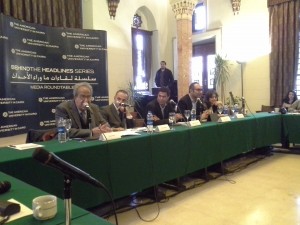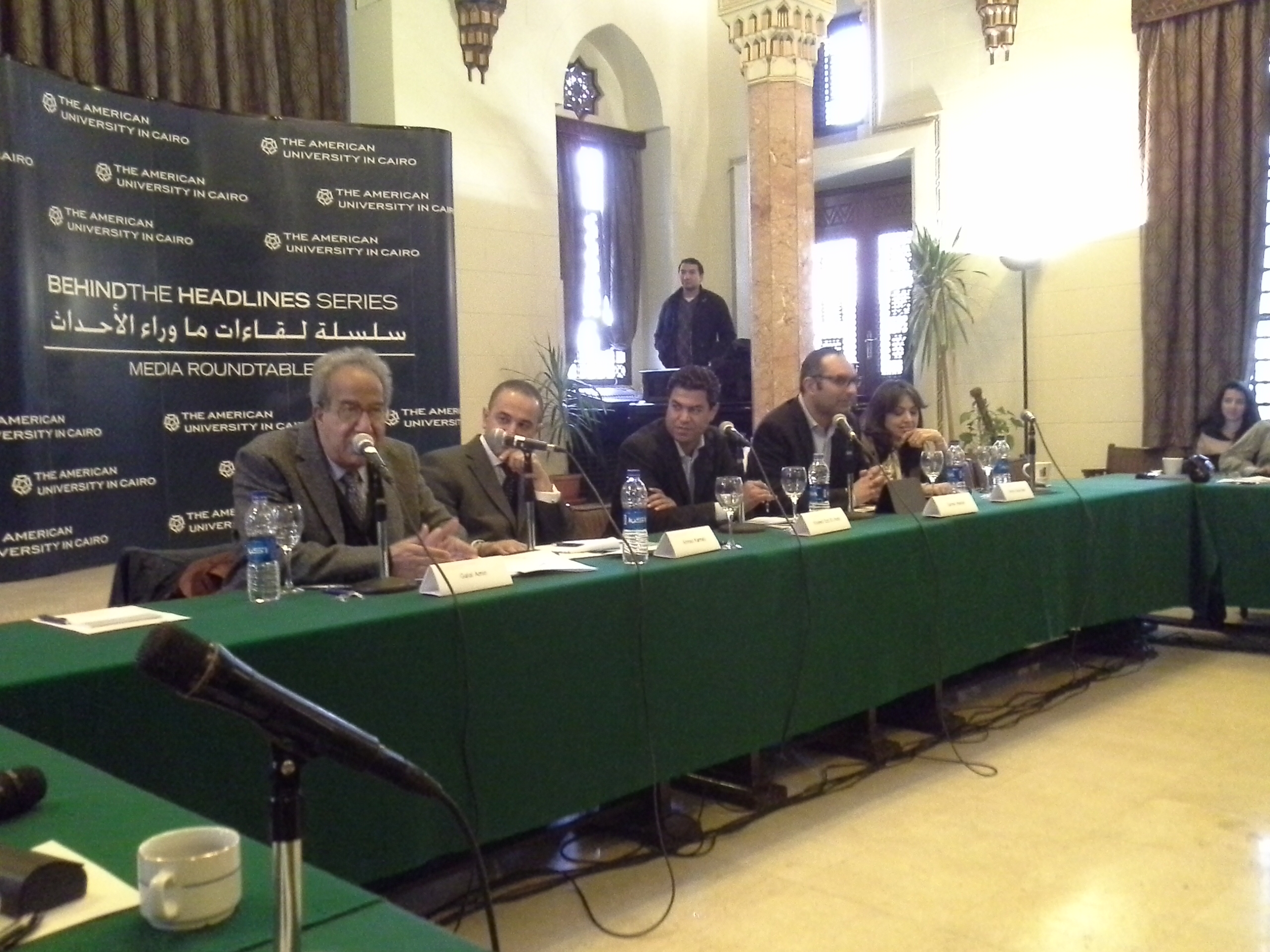
Prominent economist and author of Whatever Happened to Egyptians Galal Amin has expressed his doubts on the new Sukuk Islamic bonds the government is introducing.
Amin and other economists gave their diagnosis of the Egyptian economy and cast their predictions for 2013 at a media roundtable held at the American university in Cairo (AUC) on Wednesday.
“It is difficult to predict the future,” started the professor emeritus at AUC, explaining that the economic crisis has political causes, among which he mentioned was the lack of security, a lack of trust and above all the nature and content of political discourse bringing Egypt “back to the medieval ages”.
He said most of the factors dominating the economy are hidden and the facts are often falsified, for example the conditions the International Monetary Fund (IMF) has attached to its proposed loan in terms of subsidies and taxes, which are not yet public.
Amin then expressed his bewilderment over the sudden and hasty introduction of Islamic bonds, saying the draft sukuk law is not understandable and it seems that all that matters is Al-Azhar’s decision. “I’m afraid because [former investment minister] Mahmoud Mohey Eldin came up with the same idea and it turned out to be hoax, and allowed the foreign ownership of public utilities,” said Amin wondering if the IMF had asked for the establishment of such a tool.
Ahmed kamaly, an associate professor of economics at AUC, disagreed with Amin: “The IMF said they didn’t impose conditions, they have conveyed the message to the government that the situation is dangerous and they have to do something about it.”
Kamaly qualified his economic forecast by saying he had assumed the political situation would remain the same in 2013 before predicting: ” the dollar exchange rate will keep going down and may reach EGP 7, economic performance will be weak and the growth rate will not exceed 2.5%.”
He added that citizens will feel the impact of the crisis and poverty would increase.
Another AUC associate professor, Samer Atallah, said unleashing free market capitalism had proved to be a failure in other countries as well as Egypt where high growth rates were not accompanied with equality or human resources development.
He added that the political economy of the current administration won’t push the economy forward because it is biased towards the rich, referring to prominent Muslim Brotherhood businessman Hassan Malek’s declarations concerning reconciliation with businessmen from the old regime. “The train accidents and other accidents reveal the government’s biasness towards the rich,” added Atallah.
Manal Abdel Baki, an assistant professor of economics at AUC, said it was easier to make long term predictions and highlighted the successful experiences of emerging economies such as Turkey and South Africa who had a leader guiding the people from behind, contrasting this with Egypt which she said was divided and had no leader.
“In the long term I’m optimistic,” said Manal. “The Egyptian economy has many good characteristics; young population, large consumer base and well rooted capital markets.”
Gala Amin said to be able to predict the future we have to recall the the past, adding that during the last 50 years Egypt faced three crisis of the same intensity. The first was in 1967 when Egypt lost the petrol of Sinai, the Suez canal was closed and foreign direct investment dried up. This crisis was ended by the Khartoum Summit where Arab oil-rich countries decided to support Egypt financially. The second crisis was in 1975 when wheat prices skyrocketed and Sadat resorted to borrowing at high interest rates after US President Richard Nixon promised to help Egypt to end the alliance with the Soviets. The third similar crisis was in 1987, when Egypt failed to repay the debts accumulated by Sadat and the IMF intervened and asked the Paris Club to reschedule the debts.
Amin concluded by arguing that every time Egypt had relied on foreign aid and loans to resolve acrisis there had been a price to pay. He expected the same scenario to repeat itself in the current crisis and that the political price could be the sale of public utilities via Islamic Sukuk.



